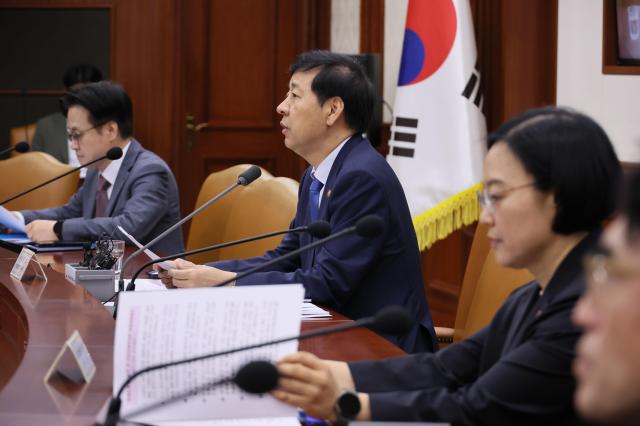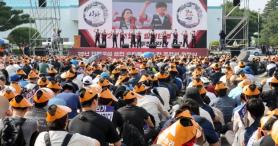
The announcement came during an economic ministers’ meeting led by Deputy Prime Minister and Finance Minister Koo Yoon-cheol, where officials also outlined support measures for exporters hit by recent tariff negotiations with Washington.
The government said it would “review CPTPP membership to secure an economic alliance network with like-minded countries.”
South Korea first weighed joining the Comprehensive and Progressive Agreement for Trans-Pacific Partnership, or CPTPP, in 2021 under former President Moon Jae-in. The effort stalled in the face of fierce opposition from farmers worried about an influx of agricultural imports.
The renewed interest reflects Seoul’s growing unease over its dependence on the United States and China, its two largest trading partners, as tensions between the superpowers deepen and protectionist policies spread. Officials say that large-scale free trade agreements are becoming more important for safeguarding access to global markets.
The CPTPP, which took effect in 2018 after the United States pulled out of its predecessor pact, now counts 12 members including Japan, Canada, Australia, Mexico and the United Kingdom. Together, they represent about 14 percent of global economic output.
Securing entry would not be straightforward. All existing members must approve new applicants, and Japan holds particular influence.
While ties between Seoul and Tokyo have warmed under President Lee Jae Myung, longstanding disputes — including South Korea’s ban on Japanese seafood imports following the 2011 Fukushima nuclear disaster — remain major obstacles.
At home, agricultural groups are also expected to resist any move toward membership. For now, officials stressed that the government is only beginning a review process, with any formal application requiring extensive consultations and approval at the highest levels.
Copyright ⓒ Aju Press All rights reserved.




